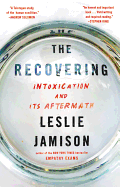
While Leslie Jamison (The Empathy Exams) follows the recovery memoir's common arc in The Recovering, her scope is significantly broader. She draws on the stories of several others and their contributing social forces. What does it mean to be a white woman struggling with addiction? What does it mean for a writer to be an alcoholic? The result is a staggering investigation into cultural assumptions about addicts, and a necessary critique of a literary scene that idolizes the drunken genius.
At the Iowa Writers' Workshop, "I spent my days reading dead drunk poets and my nights trying to sleep with live ones." Jamison contends with the legacies of literary lushes like Charles Jackson (The Lost Weekend) and John Berryman (The Dream Songs), among many other men who garnered reverence for their vices. Meanwhile, women such as Jean Rhys (Wide Sargasso Sea) and Billie Holiday (Lady Sings the Blues) drew only scorn for theirs. Moreover, Jamison digs into Bill Wilson's history and the 12-step program he spawned. Alcoholics Anonymous becomes a touchstone for her while she peels back myths of alcoholism as a creative force and breaks through to something fresh: "Thinking of addiction in terms of generative variation is the luxury of someone who hasn't spent years telling the same lies to liquor-store clerks."
More than most in the genre, The Recovering focuses on the aftermath--the frustrating realities and surprising joys of staying sober. Jamison emphasizes the perennial nature of recovery. Stability is indeed a humble, messy persistence within a culture that craves simple narratives about addiction and sobriety, genius and madness. --Dave Wheeler, associate editor, Shelf Awareness

